No products in the cart.
February 10, 2023
As an artist, I know how important creative expression can be for mental health. As someone who suffers from depression, I also know that it can sometimes be difficult to find the courage and energy to be creative.
But especially when the sadness is overwhelming, and I see no hope, it is art that builds me up and helps me process my thoughts and feelings.
It is not easy to ask for help when you are suffering from depression. This is partly due to the many prejudices that you are just too weak, too lazy, too self-pitying .... That is why it is so important to talk about depression. These misconceptions need to be cleared up. The stigma that adds to the suffering needs to be removed. Professional help is important for depression, and people need to know that it is OK to ask for, need and accept support.
Along the way, we can also raise awareness of the benefits of art as a form of therapy. I believe we all benefit from the power of art. My story shows the power of art. And I am not alone.
Let's talk about it, because the more we talk about it, the more we can learn about it and the more we can help others.
Like the Dementors of Azkaban, depression sucks the life out of its victims, leaving them with an exhaustion that makes recovery impossible. The simplest tasks become unbearable, and the world seems consumed by sadness and hopelessness. Even the things one likes to do no longer bring joy. Depression is not a weakness or a character flaw. Nor is it something you can just 'get over'. Telling someone who is depressed not to be sad or to pull themselves together is like telling a hungry person not to be hungry. It is not a matter of willpower!
Depression is a serious illness. It can lead to suicidal thoughts or even death. But it can be treated! That is why it is so important to recognize depression for what it is and to seek professional help.
Symptoms can vary greatly in intensity and duration. Some of the most common symptoms of depression include
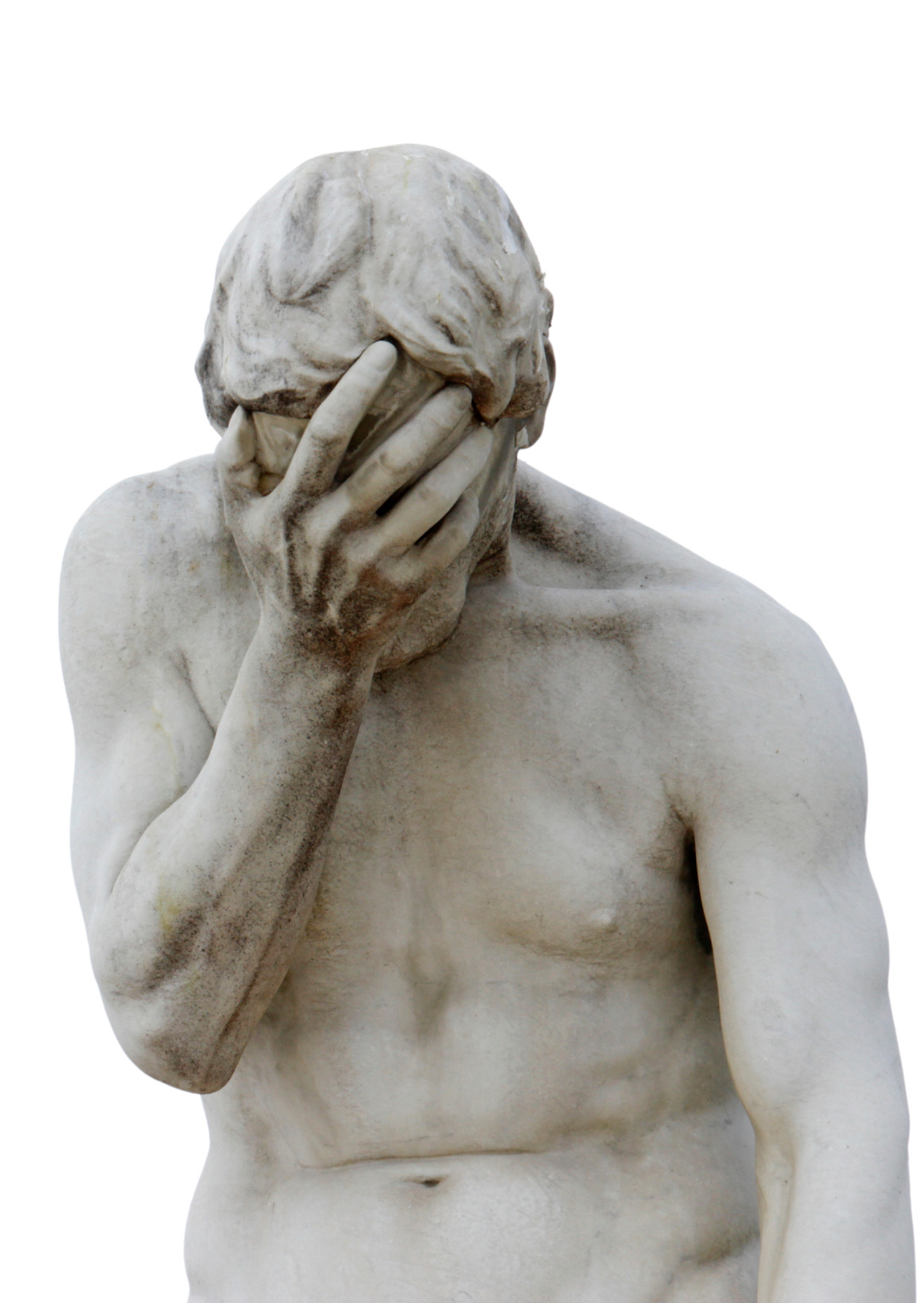
Depression is no joke - people are suffering and need help. That is why it is so important to encourage them and let them know they are not alone. With the right treatment and support, depression can be successfully managed in many cases. This includes using art as a therapeutic tool.
Do you know the feeling of being completely absorbed in an activity - like painting, writing or letting a piece of music carry you away and just letting go? This is exactly what makes art so valuable for the soul - even and especially for people struggling with depression. It's like a little spa day for the soul.
In medicine, art is a recognized form of therapy and is used as part of a comprehensive treatment plan for depression, for example. There are specially trained art therapists who help people process their feelings and emotions through creative expression. Art therapy is used as a useful adjunct to other psychological therapies and has been shown to be scientifically effective. It is not a substitute for medical or psychological treatment.
In recent years, a growing number of studies have investigated the effects of the arts on our well-being. One of these is the Trøndelag Health Study in Norway, which found a link between regular participation in the arts and better physical and mental health. Participants who took part in artistic activities such as painting, drawing or singing reported
compared to those who did not engage in artistic activities.
Another study, conducted by Queen's University in Canada, found that engaging in artistic activities can help alleviate depression and anxiety. Participants in art therapy sessions reported a reduction in their symptoms and an increased ability to express and manage their feelings.
These and other studies show that people who regularly look at art or are actively involved in the arts have higher levels of happiness, satisfaction and general well-being.
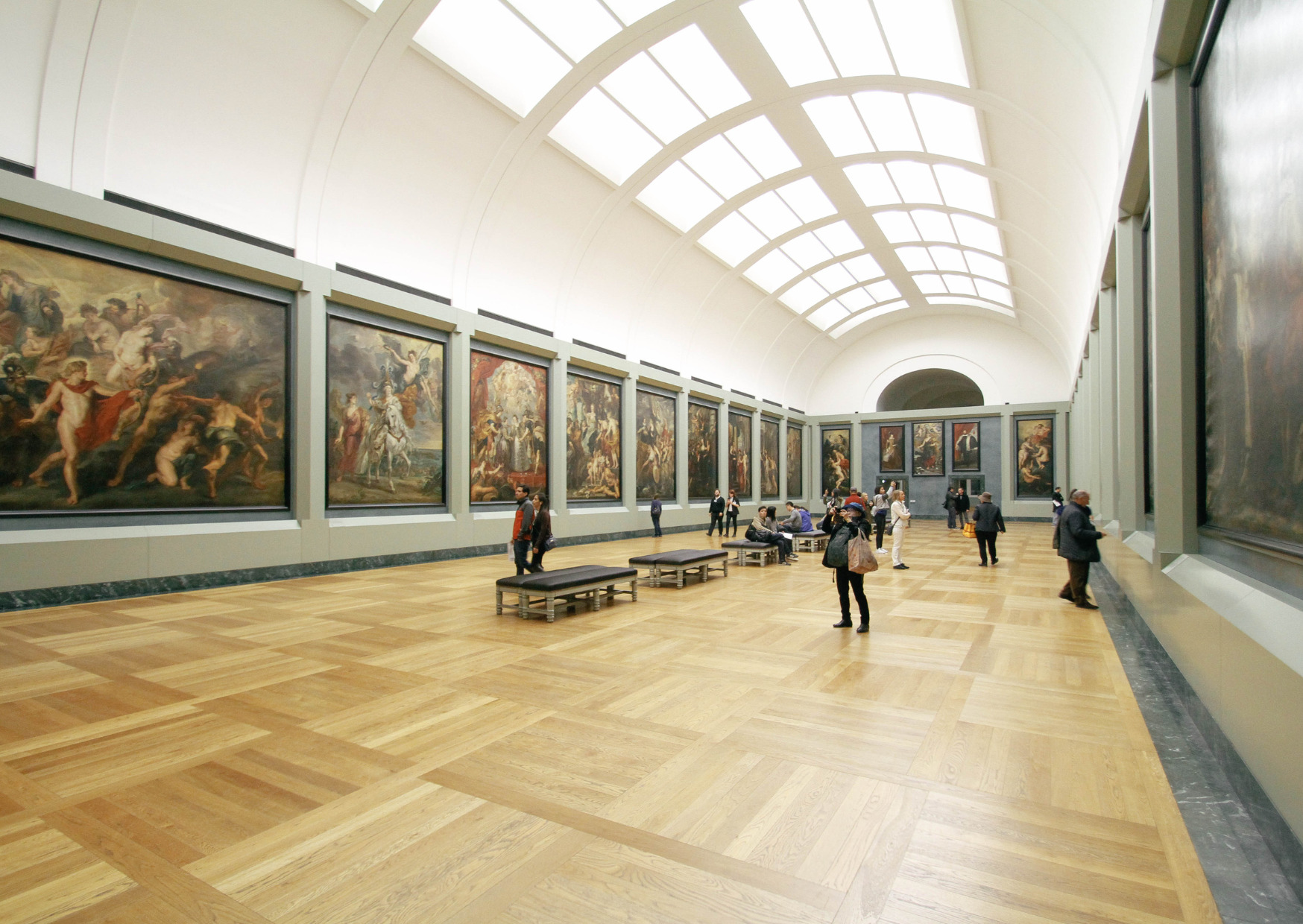
Ein Museumsbesuch ist gut für Körper und Seele. | A visit to a museum is good for both body and soul.
In 2018, a pilot project was launched in Canada that aims to harness the positive impact of art on mental health. The Médecins francophones du Canada (MdFC) and the Montreal Museum of Fine Arts are working together on the project. Doctors can prescribe a visit to the museum for patients with a variety of physical and mental conditions. Hélène Boyer, vice-president of the MdFC, is passionate about the project. She says a visit to a museum can increase levels of the happiness hormone serotonin. Art has also been shown to have a positive effect on palliative care, as well as on people with diabetes and chronic illnesses.
Incidentally, art does not only have an effect on the sick and is completely independent of age, gender or artistic ability, as well as other life circumstances such as educational level or financial means. So why not visit the nearest museum or start a creative project of your own? It could be worth it!
Have you ever tried to put your feelings into words? It's not always easy. Fortunately, there is a way to express our feelings without relying on words: art!
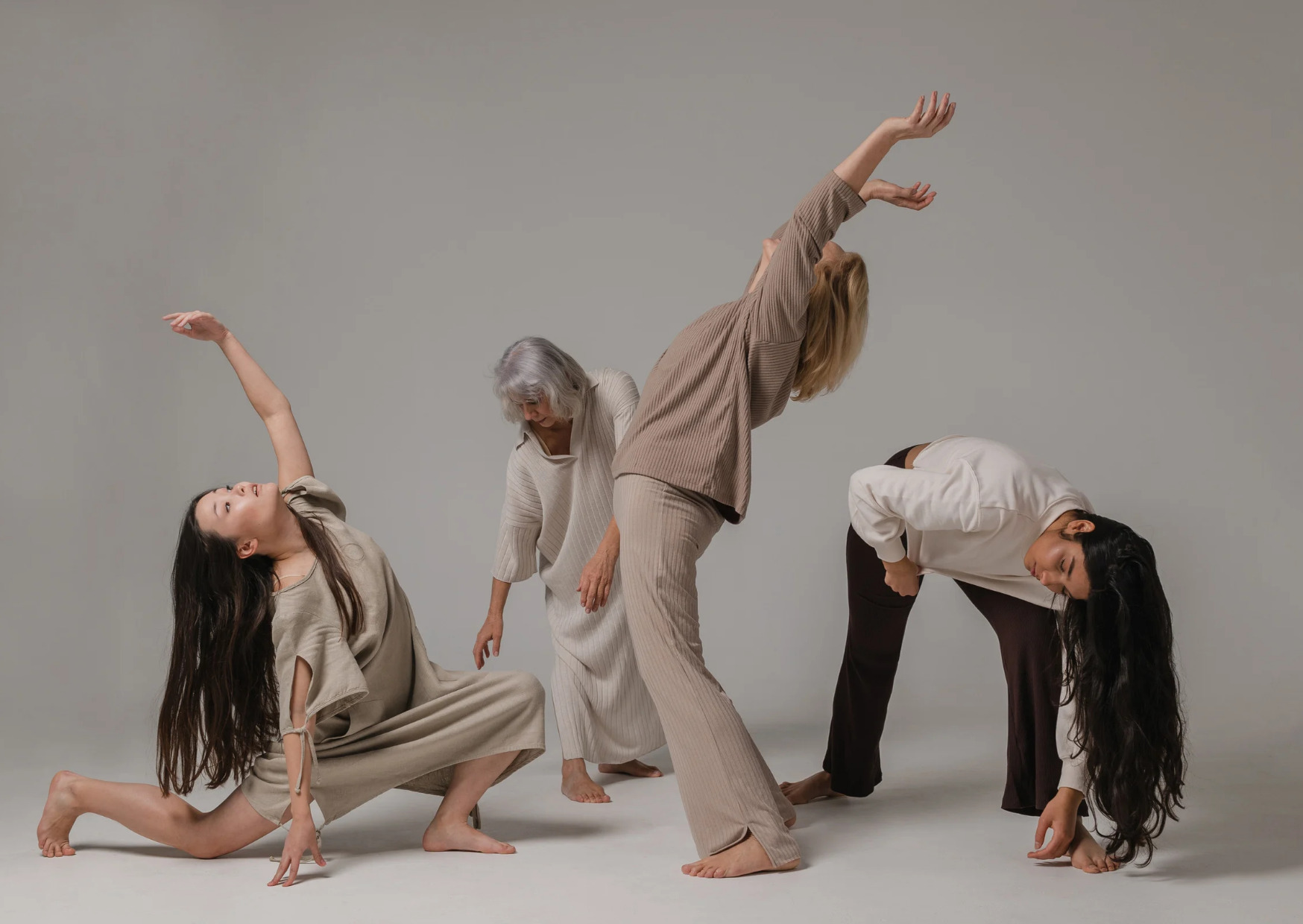
Auch Tanz ist eine ausgezeichnete Möglichkeit, sich auszudrücken. | Dance is also a great way to express yourself.
By using colours, shapes and textures, we can express our thoughts and feelings without having to put them into words. And: everyone can understand art, no spoken language is needed!
There are many different types of art that can be used as a form of expression, including painting, drawing, photography, pottery and many more. Each type of art can have a (different) effect. The important thing is to find the art that suits you and helps you to express your feelings.

"Before a child speaks, it sings. Before they write, they paint. As soon as they stand, they dance. Art is the basis of human expression."
- Phylicia Rashād
The link between art and depression is not new. Many famous artists have struggled with depression in their lives. Some have incorporated the illness into their art. Who says that sadness and pain cannot be inspiring forces? Even in the darkest moment, beauty can emerge.
Vincent van Gogh is one of the most famous artists to suffer from depression. His distinctive paintings, full of passion and colour, have made him one of the most outstanding exponents of Impressionism. For many years of his life, he struggled with his mental health. In April 1889, he voluntarily committed himself to the Saint-Paul-de-Mausole lunatic asylum in Saint-Rémy. He spent an entire year there. During his stay, standing at his window, he painted some of his most famous works, such as the famous "Starry Night". His passion for art helped him to express and process his dark thoughts and emotions.
Sylvia Plath also suffered from depression. The poet and writer was known for her blunt way of expressing her emotions and thoughts in her works. Her diary "The Bell Jar" is an impressive example of how she put her feelings on paper. Her works show a strong emotional intensity and a deep connection to her feelings. Sylvia Plath ended her life, but her works have helped many people to better understand and express their own thoughts and feelings.
Many great artists have suffered from depression. These are just a few:
The subject of depression and what it means to those who suffer from it is still far too rarely discussed. But I am here to tell my story and how art played an important role in bringing me out of the darkness.
My first experience of depression was when my younger son was about 6 months old. It wasn't until 1.5 years later that he was diagnosed with Autism Spectrum Disorder, which I didn't know at the time. But looking back, I can say that the stress was very high even then. His 'big' brother was only a year older, my then husband was working a lot, we had just moved to the area, I didn't know anyone and I had no family who could (or would) support me.
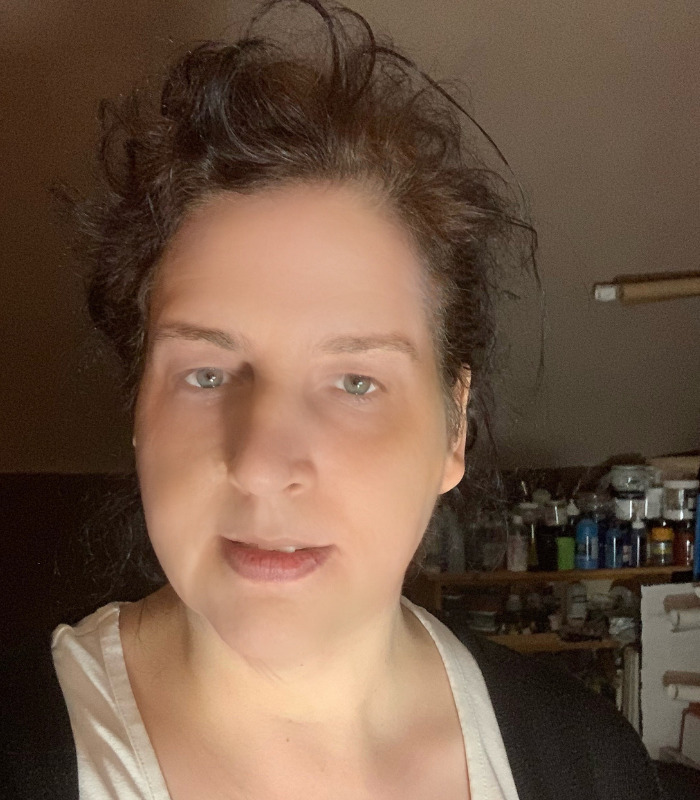
I was completely overwhelmed and alone, feeling burnt out, exhausted and desperate. The days were grey and empty, and I no longer felt like doing things that I actually enjoyed. I knew something was wrong, but I didn't know how to describe it. It took me a long time to really understand what was wrong with me, and even longer to seek help. Basically, it was physical reactions at the time that made me go to the doctor. I was lucky that my doctor recognized that the causes were psychological.
With his help, I quickly came out of the depression. After that, I was fine for a long time. But about 8 years later it hit me again. Again it started with excessive demands, stress, even burnout, but then it developed into a serious depression. Again it took me a long time, far too long, to realize what was going on. And again, even then, I couldn't ask for help for a long time.
Unfortunately, when I finally went to see my doctor, the cure was not so simple. It did not get better. At some point, I decided to go to a clinic. It was the right decision. Taken out of my everyday life, I could find peace. I was not alone. Talking to other patients who understood how I felt, who were going through the same thing, helped me a lot.
And it was in the clinic, in art therapy, that I finally found access to my art again. I had painted and drawn a lot in my childhood and youth, but I had stopped when life and work took over. But now art was exactly what I needed.
It was like a liberation. I could express and process my thoughts and feelings. I could use colours and shapes to represent my moods and I could lose myself in my art, find myself and forget everything else for a while. Art was my salvation. For me, art helps, always!
When I was discharged from hospital, I took the art with me, and it hasn't left me since. I keep it, and it is an integral part of my life. As time went on, I got better and gained new confidence. I shared my work with others and received a lot of positive feedback, which was overwhelming for me. I didn't expect my art to touch other people. Almost 20 years after my first depression, I decided to make art my profession. I have been working as a freelance artist for 3 years now.
Unfortunately, depression has never completely left me. There are always phases and episodes of depression. But one sentence from my doctor helped me a lot. When I was with her during an episode, she said: "I understand how you feel right now. But rest assured: you will get out of this! And I will help you. I don't know why that sentence had such an impact on me. I had had this experience before, I had come out of it many times before. And yet! That sentence gave me confidence.
It still does today. Today, when I get into a depressive phase, I say to myself: "You'll get out of it". I can now quickly recognize when I'm in a depression, and I know how to take care of myself when I'm in one. I allow myself to rest and know not to push myself too hard. My new partner Stefan and my sons are very patient and understanding and so supportive. I spend a lot of time in nature, seeing the little things, the beauty. And of course, I paint. Strangely enough, when I'm sad I paint with bright, strong, happy colours. That is not usually the case. It's probably the defiance in me. I have to stand up to it.
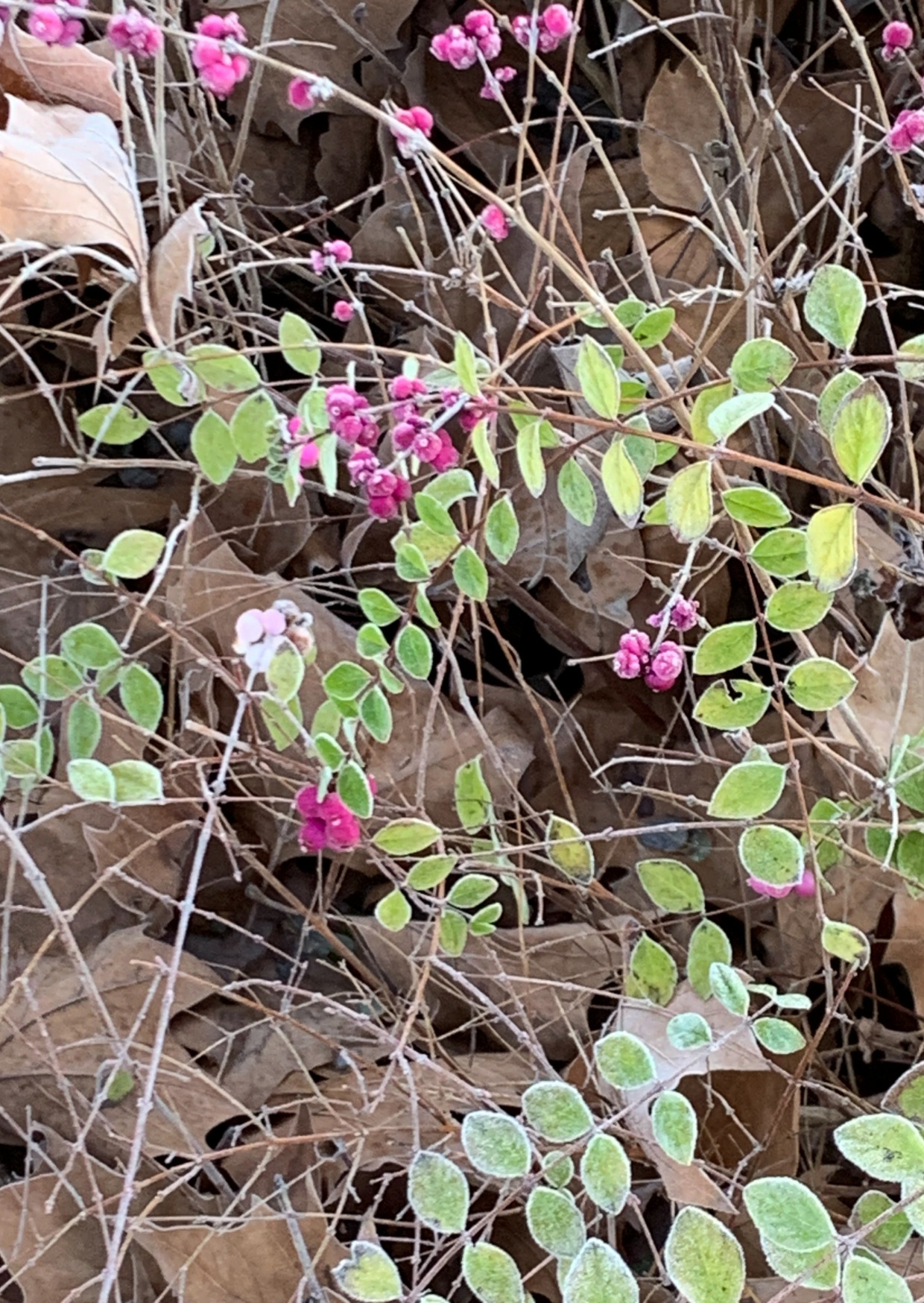

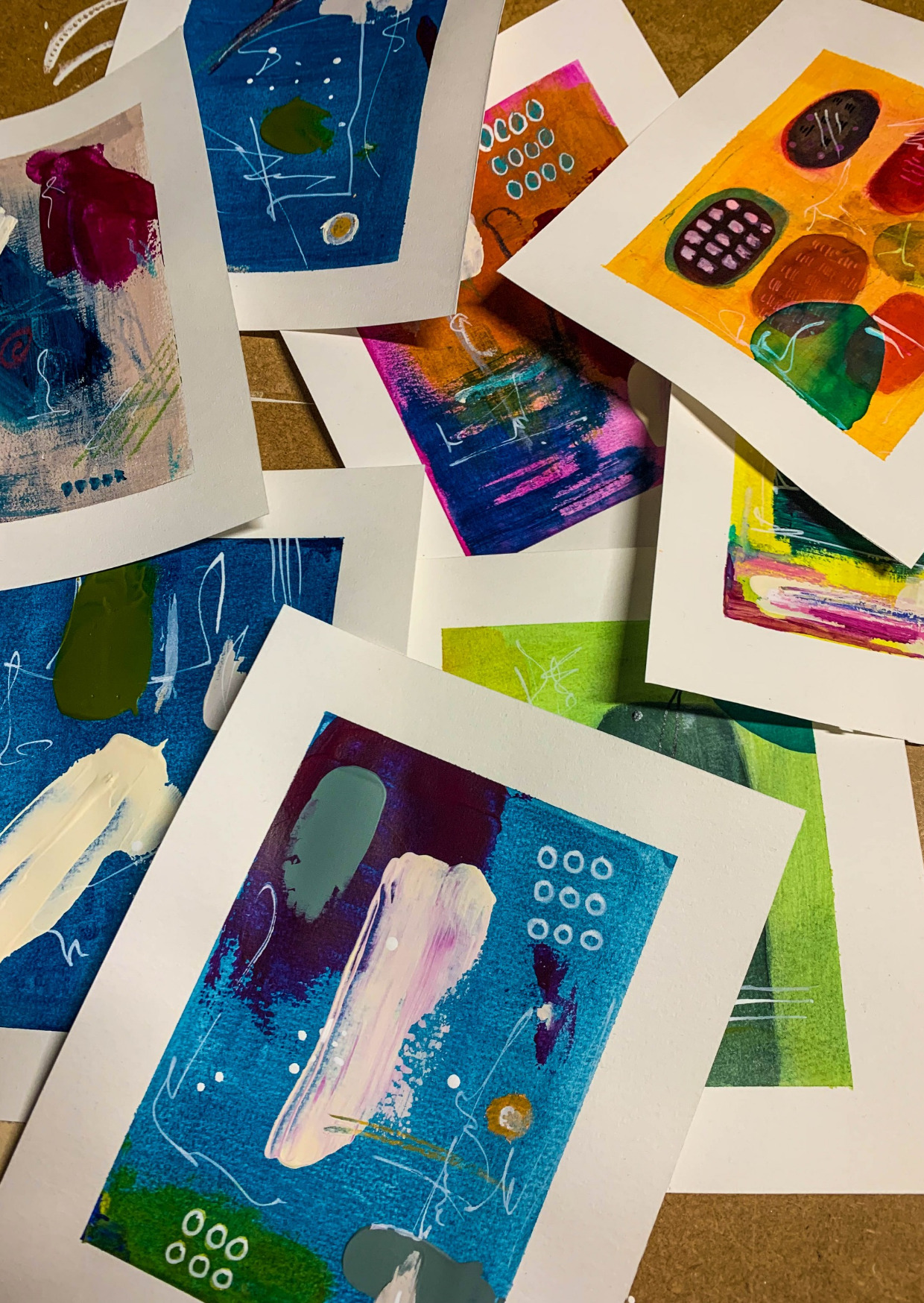
Despite occasional relapses, I am a happier and more content person today than I was a few years ago. Art always helps me to overcome my depressions and brings me out of the darkness. I am grateful for each day and for art.
Have you ever felt that everything is meaningless? Do you find it hard to make decisions and just feel sad and exhausted? I know what it feels like to be depressed. And I want to tell you that you are not alone and that there is help. These tips have helped me:
Remember that it's OK to ask for help. Depression is treatable and there are ways to get better. Don't get discouraged if it takes time, and remember that you're not alone on this journey. I hope these tips help.
Depression can be a very painful and isolating experience. Do you know someone who is depressed and want to help, but don't know how? Try these tips:
There is no one-size-fits-all solution. Everyone experiences depression differently, and what works for one person may not work for another. Just ask what works for your friend and give them time to find what works for them. Ultimately, it's about offering patience, understanding and support to help.

Hey, you don't have to answer, I just wanted to let you know I'm here,
if you need me. You are not alone!
A simple message can have a big impact.
But also make sure you take good care of yourself. It can be very stressful to support someone who is suffering from depression. Make sure you have enough time and space for yourself to avoid being overwhelmed.
It is important to pay attention to our needs and to take time to heal and grow.
Would you like to share your story? I would love for you to share it here. What helps you with depression? What art form do you use to express yourself? I am curious and look forward to your comments and thoughts. Let's talk about this important topic and support each other. We are not alone, and we can find healing through art.
Join the newsletter now
and not miss a thing
Get exclusive insights into my creative processes, learn the stories behind my artwork
and receive invitations to my exhibitions and events.
To say thank you, I'll give you 10% off your first purchase.
Session expired
Please log in again. The login page will open in a new tab. After logging in you can close it and return to this page.